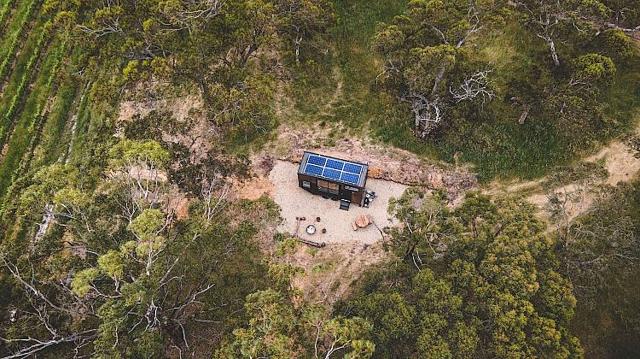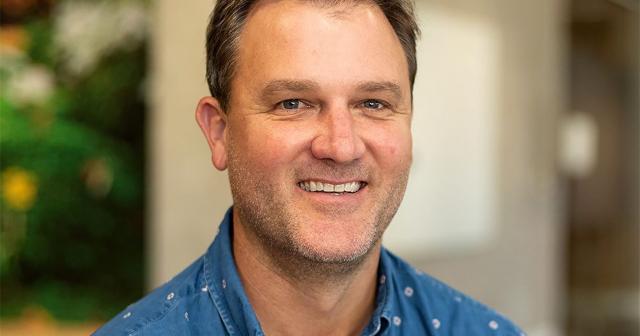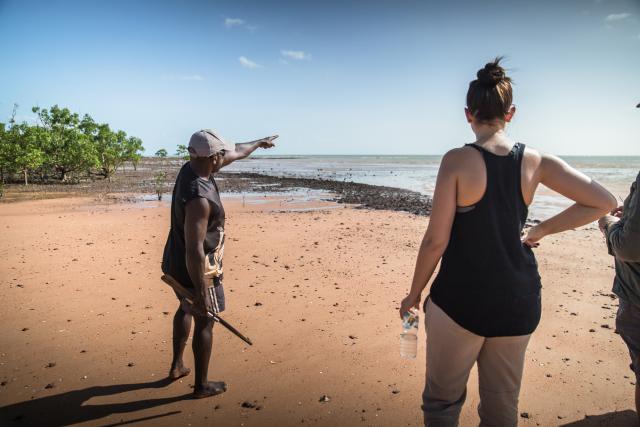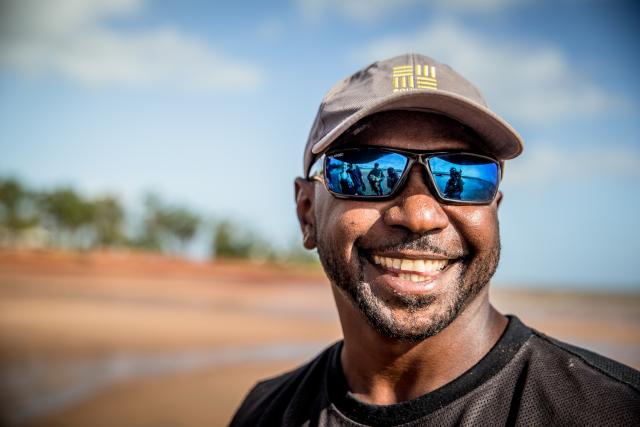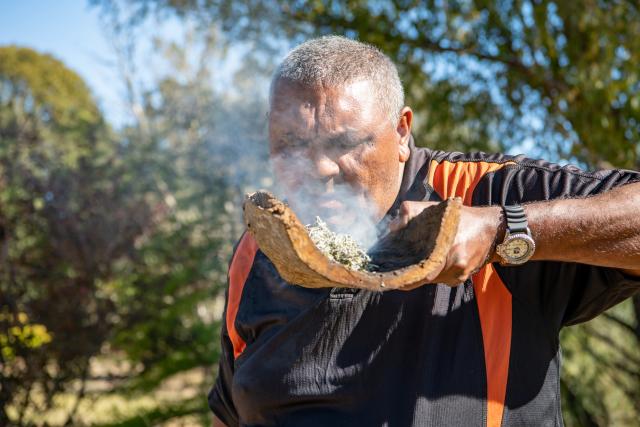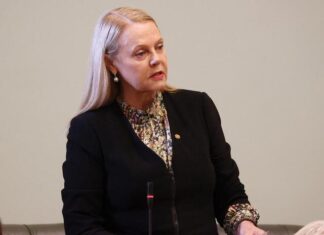As we reach the end of the 60-day period of grace following the signing of a Cooloola Indigenous Land Use Agreement between Kabi Kabi First Nations and the state government late last year, interested parties are anxious to hear what’s next for the controversial Great Walk ecotourism project.
Unable to spend much more time outside the media cone of silence that has enveloped the project, Noosa Today decided to focus instead on the little-known fact that one of the world’s most innovative travel companies is potentially the key player in developing a vision for the Cooloola Great Walk.
Last May CABN, the successful commercial proponent for the Great Walk, and Melbourne-based Intrepid Travel announced an equity partnership that would see the sustainable travel group with impressive global reach invest almost $8 million in the growth of CABN’s off-grid accommodation business and help integrate it into their own Australian small group travel itineraries. While this barely caused a ripple beyond the travel trade media, it had significant ramifications for the Great Walk, if the Kabi Kabi were to vote in the Cooloola land use agreement.
The partnership was also exquisitely timed, as trend watchers in the travel industry were beginning to predict a boom in off-grid travel as we came out of Covid.
The EuroNews travel trend report for 2023 dubbed it “regenerative travel”, noting: “The next iteration of ecotourism goes beyond calls to tread lightly and leave no trace. In 2023 the focus moves towards nature-positive and carbon-positive travel. Tour operators, destination bodies and hotels are tasked with the job of actively repairing, restoring and investing in nature in order to keep pace with consumer sentiment. Spurred by the pandemic-born trend for immersion in nature, a growing number of travellers will seek to distance themselves from other people by ditching rooms in favour of rural huts and cabins.”
While the equity partnership between CABN and Intrepid covers a range of projects around Australia, with the Cooloola ILUA about to be confirmed, Intrepid’s vast experience and commitment to developing First Nations sustainable tourism models is expected to become a major factor in future partnerships with Kabi Kabi.
Of course, CABN founder and chief executive officer Michael Lamprell already has a strong track record in working with Indigenous communities, but Intrepid over the past decade has taken it to the next level in Australia and overseas.
Founded by travel buddies Darrell Wade and Geoff Manchester in 1989, over three decades Intrepid has grown to be the world’s largest small-group adventure travel company, made up of four tour brands – Intrepid Travel, Peregrine Adventures, Urban Adventures and Adventure Tours Australia, as well as a not-for-profit, The Intrepid Foundation. The company offers more than 1150 trips across every continent, all designed to offer a true experience of local culture. Intrepid Travel has been carbon neutral since 2010 and is renowned as a leader in responsible travel.
Although the company offered First Nations’ components on some of its itineraries from very early days, its full embrace of reconciliation began in 2018 with the first Innovate Reconciliation Action Plan, introduced to help build respectful relationships with First Nations’ people around Australia.
RAP, as it’s become known, guides Intrepid’s commitment to reconciliation, with two First Nations advisors on its working group helping to develop commercial relationships with Aboriginal and Torres Strait Islander businesses, incorporate new experiences on their itineraries and bolster the team’s understanding of the purpose and significance behind cultural protocols.
RAP has helped increase First Nations tourism experiences in Australia from 12 in 2019 to more than 50 by 2022, a year in which Intrepid spent more than $500,000 with Indigenous businesses and suppliers.
In 2023, the company’s global trip offering includes more than 100 First Nations experiences in New Zealand, Costa Rica and Mexico as well as Australia.
Among these are a Mayan village medicinal garden visit and textile weaving workshop in Mexico and a five-day Queensland Scenic Rim walk, led by host Gurruhmun Old Man Kangaroo, a Ugarapul and Bidjara man.
Intrepid’s work with the Taungurung Land and Waters Council in Victoria in developing a cultural tour guide program is another interesting parallel with what they might bring to Cooloola.
Aimed at providing the skills and capacity for the guides to confidently tell their story through immersive tourism experiences on country, the program involved identifying potential guides and helping hone their skills, but the learning was a two-way street, with Intrepid’s instructors coming away with an enhanced understanding of the cultural protocols around storytelling.
Intrepid Travel’s managing director for Australia and New Zealand, Brett Mitchell supported the importance of sharing rather than giving knowledge in an exclusive interview with Noosa Today this week.
NT: Right now, how involved is Intrepid with training Kabi Kabi people for jobs on the Cooloola Great Walk?
BM: At this stage it’s still very early in the process, with the ILUA only being signed late last year, too early to give you a timeline, but we’ll be hoping to develop them soon and start to work through what a Cooloola program might look like. But we’ve had our people up there with Michael Lamprell, basically getting to meet the Kabi Kabi people and introduce them to what Intrepid does, what our values are and what the business stands for.
NT: And what role does CABN play in that?
BM: We haven’t mapped that out at the moment but the intention is to create a genuine partnership between CABN and the Kabi Kabi community, with Intrepid contributing training programs and product expertise, and distribution when it comes to that, but a lot of this will be driven by CABN and Kabi Kabi working up the commercial models and the skill sets required. But the big element will be learning from the Kabi Kabi about their connection to country and how that plays out in the walk.
Intrepid has had considerable experience working with Indigenous people in Australia and elsewhere to develop training programs and to build capacity for their communities in and around tourism. It’s a complex business but we’ve had 33 years of managing sustainable, small group travel and we want to share that with the Kabi Kabi. Being a B-Corp organisation [a global certification program for businesses that demonstrate they benefit people, communities, and the planet] means looking after all stakeholders, and that’s what we intend to do in this partnership.
NT: I was aware that Intrepid had been doing small group travel for more than 30 years but the Indigenous involvement is somewhat more recent, is it not?
BM: We’ve predominantly been an outbound international travel business, taking Australians to other destinations, but we’ve had a small component here dating back at least 15 years. But it’s fair to say that in the beginning our First Nations experiences were fairly limited. Our serious commitment came when we started talking about a Reconciliation Action Program in 2016. Then our goal was to introduce First Nations experiences on all of our Australian itineraries. Now we have about 80 Australian itineraries and our goal is to give all of them a First Nations voice. We’re making progress but there’s a lot of work still to be done.
NT: How does the Cooloola Great Walk project compare in scope with what you’ve done in Taungurung?
BM: I think it’s very different, but it’s still very early stages in Intrepid’s involvement whereas CABN has been there for three years. Over the next 12 months we’ll be spending a lot more time on country with the Kabi Kabi to determine those things, but the work we’ve done with the Taungurung Land and Water Council has been an important part of our journey in learning how we can make tourism a force for good within First Nations communities. So I think we would want Cooloola to be another embodiment of the same principle of bringing economic empowerment that is sustainable, appropriate and in the interest of all stakeholders. Hopefully we can play a part in that over the next decade.
NT: Next decade? That’s an interesting timeline because we haven’t been given a clear indication of when the commercial proponents might bow out and leave it to the Kabi Kabi. Can you explain the long-term vision?
BM: I believe the lease is 30 years, and as a business we would want to be able to contribute to economic empowerment and bring in our skill sets where they’re needed, and then work out how we continue to support that over the longer term. Any successful business needs partners, and that’s how Intrepid has evolved. What do we see as success in this instance? Seeing Kabi Kabi fully owning and managing a successful and sustainable tourism business.

